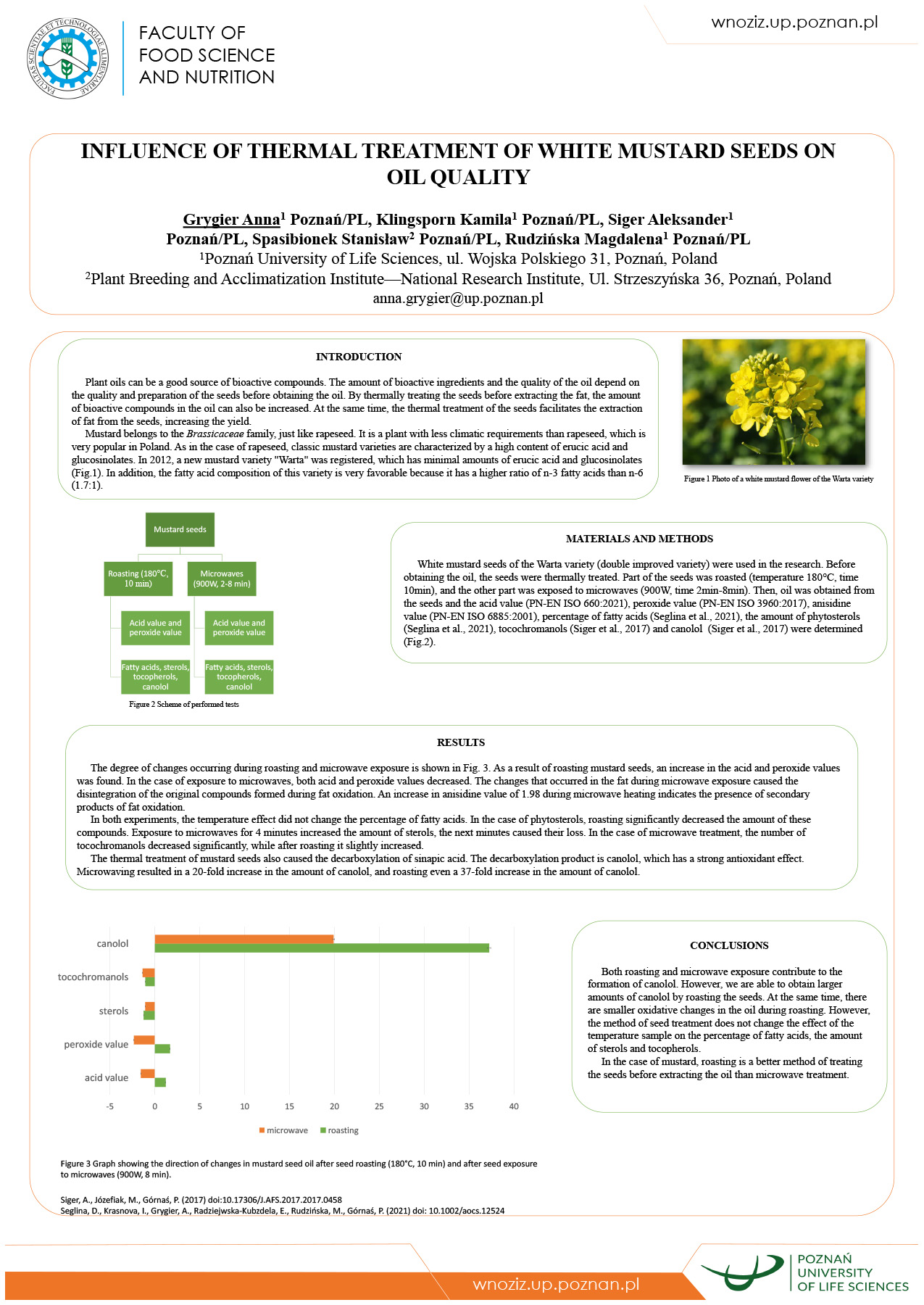Plant oils can be a good source of bioactive compounds. The amount of bioactive ingredients and the quality of the oil depend on the quality and preparation of the seed before obtaining the oil. By thermally treating the seeds before extracting the fat, the amount of bioactive compounds in the oil can also be increased. At the same time, the thermal treatment of the seeds facilitates the extraction of fat from the seeds, increasing the yield.
White mustard seeds of the Warta variety (double improved variety) were used in the research. Before obtaining the oil, the seeds were thermally treated. Part of the seeds was roasted (temperature 180°C, time 10min), and the other part was exposed to microwaves (900W, time 2min-8min). As a result of roasting mustard seeds, an increase in the acid and peroxide values was found. In the case of exposure to microwaves, both acid and peroxide values decreased. However, this does not mean an improvement in the oil quality due to the increase in anisidine number. In both experiments, the temperature effect did not change the percentage of fatty acids. In the case of sterols, roasting significantly decreased the amount of these compounds. Exposure to microwaves for 4 minutes increased the amount of sterols, the next minutes caused their loss. In the case of microwave treatment, the number of tocochromanols decreased significantly, while after roasting it slightly increased.
The thermal treatment of mustard seeds also caused the decarboxylation of sinapic acid, which has a strong antioxidant effect. Microwaving resulted in a 20-fold increase in the amount of canolol, and roasting even a 37-fold increase in the amount of canolol.
